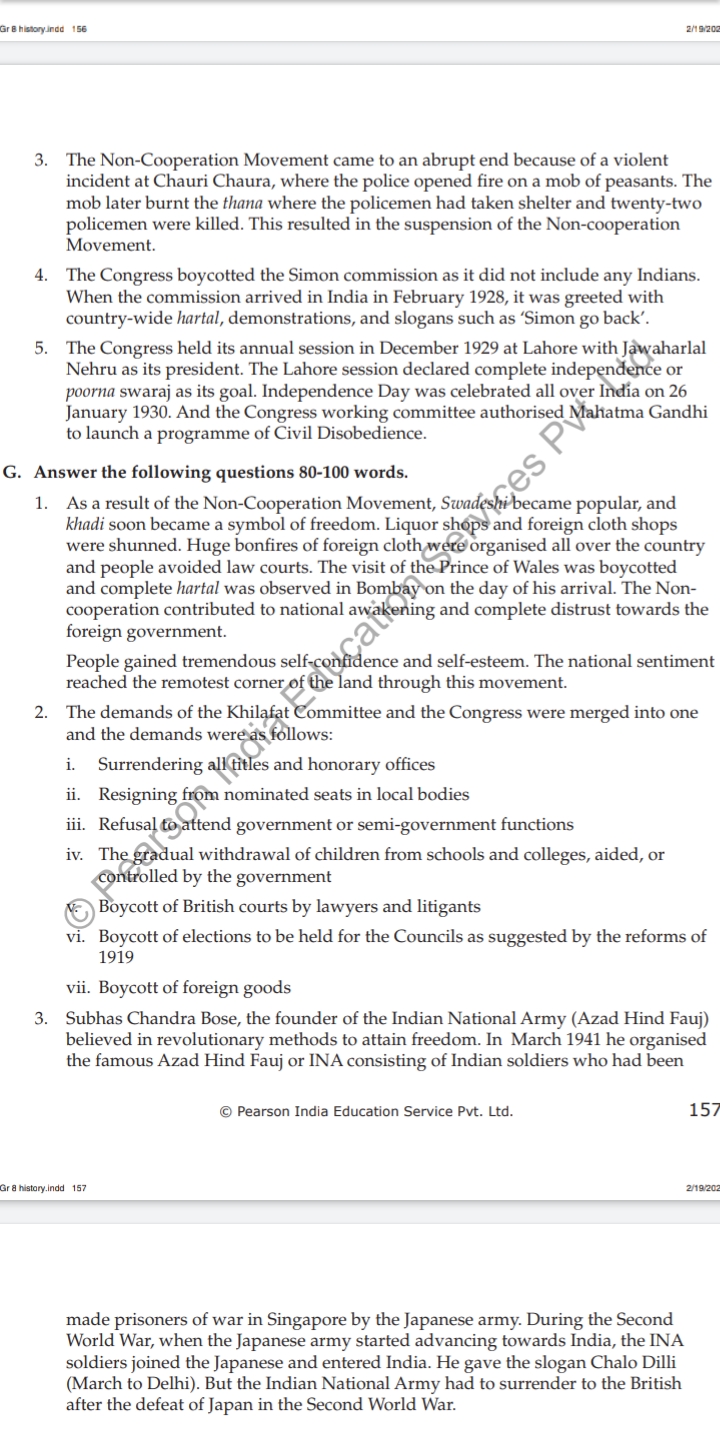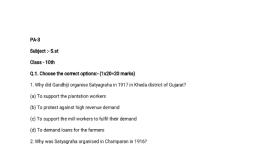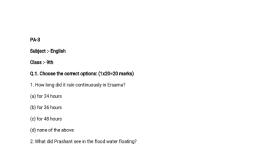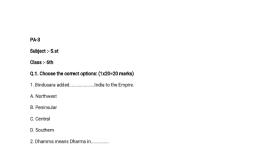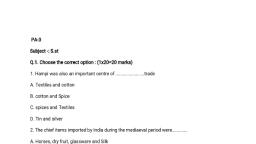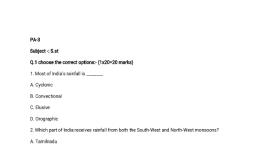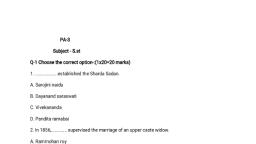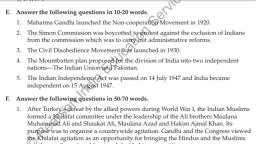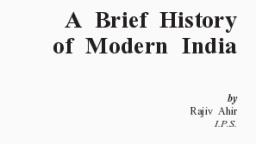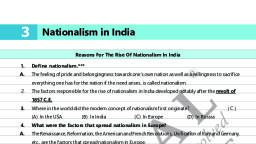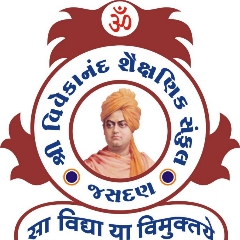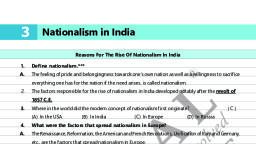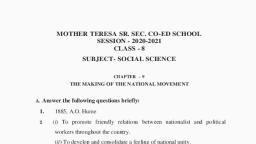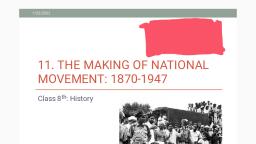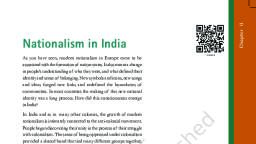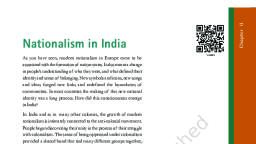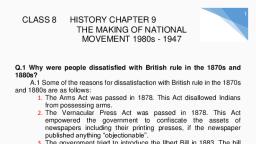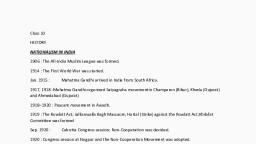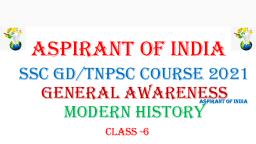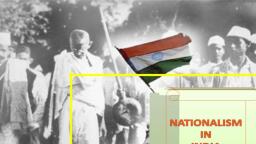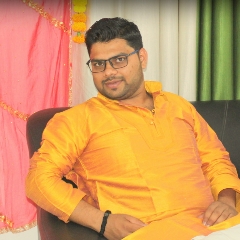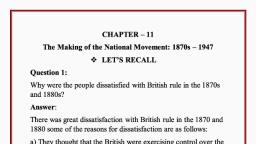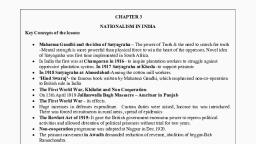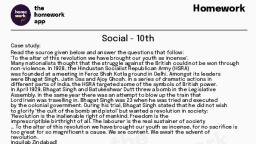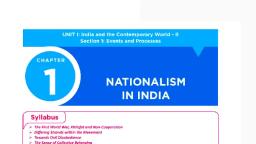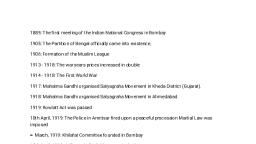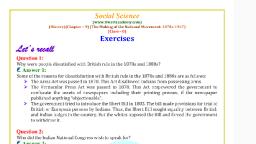Page 1 :
Sr Bho ince 156 ‘ansa, , 3., , The Non-Cooperation Movement came to an abrupt end because of a violent, incident at Chauri Chaura, where the police opened fire on a mob of peasants. The, mob later burnt the thana where the policemen had taken shelter and twenty-two, policemen were killed. This resulted in the suspension of the Non-cooperation, Movement., , The Congress boycotted the Simon commission as it did not include any Indians., When the commission arrived in India in February 1928, it was greeted with, country-wide hartal, demonstrations, and slogans such as ‘Simon go back’., , The Congress held its annual session in December 1929 at Lahore with Jawaharlal, Nehru as its president. The Lahore session declared complete independ fe or, poorna swaraj as its goal. Independence Day was celebrated all over Iidia on 26, January 1930. And the Congress working committee authorised Niahatma Gandhi, to launch a programme of Civil Disobedience., , G. Answer the following questions 80-100 words. ee, , 1, , Asa result of the Non-Cooperation Movement, Swadgshvbecame popular, and, khadi soon became a symbol of freedom. Liquor shéps and foreign cloth shops, were shunned. Huge bonfires of foreign clot organised all over the country, , and people avoided law courts. The visit of \ce of Wales was boycotted, and complete hartal was observed in rate the day of his arrival. The NoniB, , , , cooperation contributed to national a and complete distrust towards the, foreign government., , , , People gained tremendous self: lence and self-esteem. The national sentiment, reached the remotest corner, de and through this movement., , The demands of the ee, ‘ommittee and the Congress were merged into one, and the demands wer lows:, , i. Surrendering al{fitlés and honorary offices, ii, Resigning fr6m nominated seats in local bodies, iii, Refu end government or semi-government functions, iv. Th ual withdrawal of children from schools and colleges, aided, or, led by the government, Sven of British courts by lawyers and litigants, , vi. Boycott of elections to be held for the Councils as suggested by the reforms of, 1919, , vii. Boycott of foreign goods, , Subhas Chandra Bose, the founder of the Indian National Army (Azad Hind Fauj), believed in revolutionary methods to attain freedom. In March 1941 he organised, the famous Azad Hind Fauj or INA consisting of Indian soldiers who had been, , © Pearson India Education Service Pvt. Ltd. 157, , Gr histon.indd 157 ‘aneze:, , made prisoners of war in Singapore by the Japanese army. During the Second, World War, when the Japanese army started advancing towards India, the INA, soldiers joined the Japanese and entered India. He gave the slogan Chalo Dili, (March to Delhi). But the Indian National Army had to surrender to the British, after the defeat of Japan in the Second World War.
